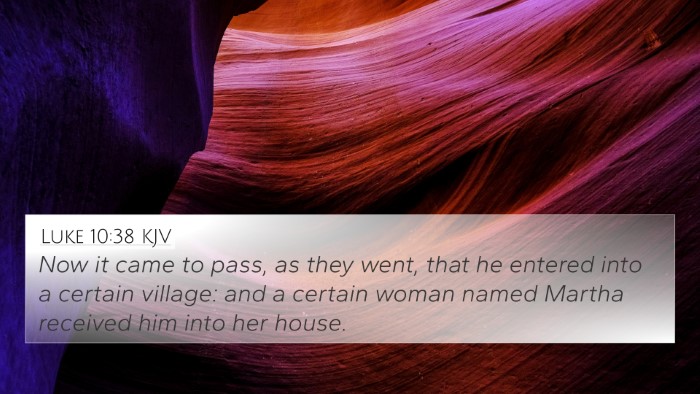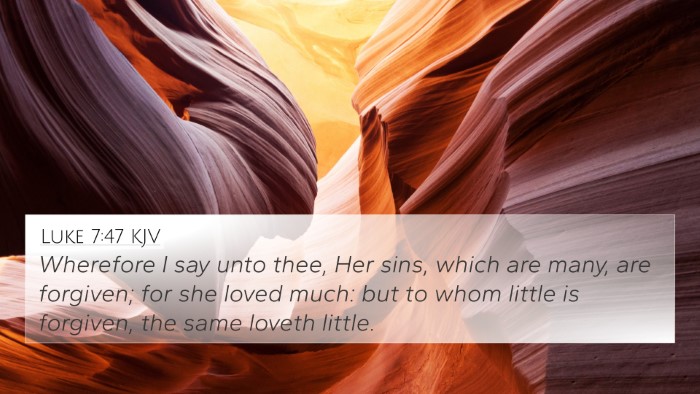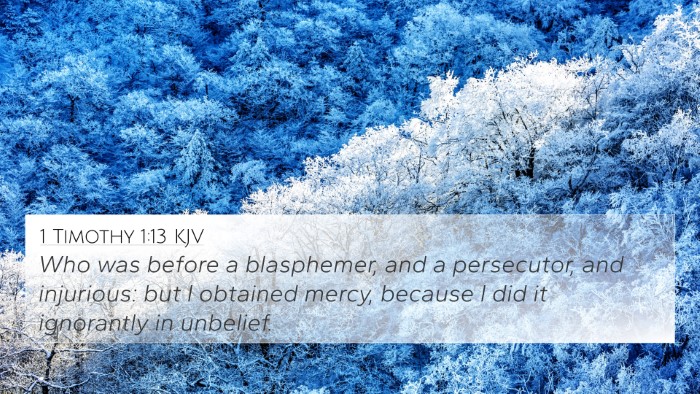Understanding Luke 7:43
Luke 7:43 states, "I suppose the one who he forgave more." This verse emerges in a parable Jesus tells, where He compares two debtors to illustrate God's grace and forgiveness towards sinners. Understanding this verse requires a deep dive into its context, exploring the themes of forgiveness and the heart's attitude towards it.
Verse Context
In the context of Luke 7, Jesus attends a meal at the house of Simon the Pharisee, where a sinful woman anoints His feet with perfume. This act of love and devotion prompts Jesus to tell a parable about two debtors, which leads to the statement made in Luke 7:43. The key to uncovering the meaning of this verse lies in how it integrates with the rest of the narrative and broader Biblical themes.
Commentary Insights
Matthew Henry's Commentary
Matthew Henry emphasizes that the depth of forgiveness impacts one's love and gratitude towards God. He interprets the phrase "I suppose" as Peter’s hesitance to acknowledge the one who loves more, suggesting that those who are forgiven much will love much. This highlights the intimate relationship between forgiveness and love for God.
Albert Barnes' Commentary
Albert Barnes notes that the two debtors represent sinners of varying degrees but equally in need of forgiveness. The contrast illustrates God's mercy, which is not measured by the amount of sin but by the grace bestowed. Barnes stresses that forgiveness leads to a greater sense of obligation and devotion to God.
Adam Clarke's Commentary
Adam Clarke adds depth by mentioning the theological implications of forgiveness. He states that recognizing one's debt (sin) is essential, as it fosters humility and a true appreciation for God's mercy. Clarke points out that Jesus's teaching flips the societal understanding of morality and sinfulness, indicating that the humble are more likely to grasp the enormity of God’s grace.
Thematic Bible Verse Connections
Luke 7:43 can be cross-referenced with several key scriptures to deepen understanding. Here are some connections:
- Matthew 18:21-35 - The Parable of the Unforgiving Servant emphasizes the duty of forgiving others as we have been forgiven.
- Romans 5:20-21 - Where sin increased, grace abounded all the more, highlighting the overflow of grace in contrast to sin.
- Ephesians 4:32 - Encourages believers to forgive others as God in Christ forgave them.
- 1 John 1:9 - Speaks of confession and God's faithfulness to forgive, pertinent to understanding mutual forgiveness.
- Luke 15:11-32 - The Prodigal Son demonstrates forgiveness and celebration of the lost being found, similar to the themes in Luke 7.
- Psalm 103:12 - Illustrates God’s forgiveness, removing our sins as far as the east is from the west.
- Isaiah 1:18 - God invites sinners to reason together, promising forgiveness and purification.
Applying the Teachings
The teachings encapsulated in Luke 7:43 encourage reflection on how we perceive sin and forgiveness in our lives. It prompts believers to acknowledge their own debts and respond with love and gratitude. The process of understanding Luke 7:43 involves connecting it with other Biblical teachings, thereby enhancing personal growth and understanding of grace.
Tools for Bible Cross-Referencing
To delve deeper into verses like Luke 7:43, utilizing a Bible concordance can prove invaluable. Other Bible reference resources include cross-reference guides and detailed studies that allow for comparative analysis of scriptures.
Conclusion
Luke 7:43 serves as a profound reminder of the transformative power of forgiveness. By linking this verse with a broader scriptural context and analyzing its implications through various commentaries, we gain greater insight into God’s unmeasurable grace. Embracing these teachings fosters a deeper relationship with God and aids in understanding the heart of Christian faith.
Explore More
For those keen on comprehending the connections between Bible verses, exploring cross-referencing Bible study methods can illuminate how different scriptures converse with one another. Engaging in this comparative Bible verse analysis provides greater theological insight, especially concerning doctrines of grace and forgiveness.









